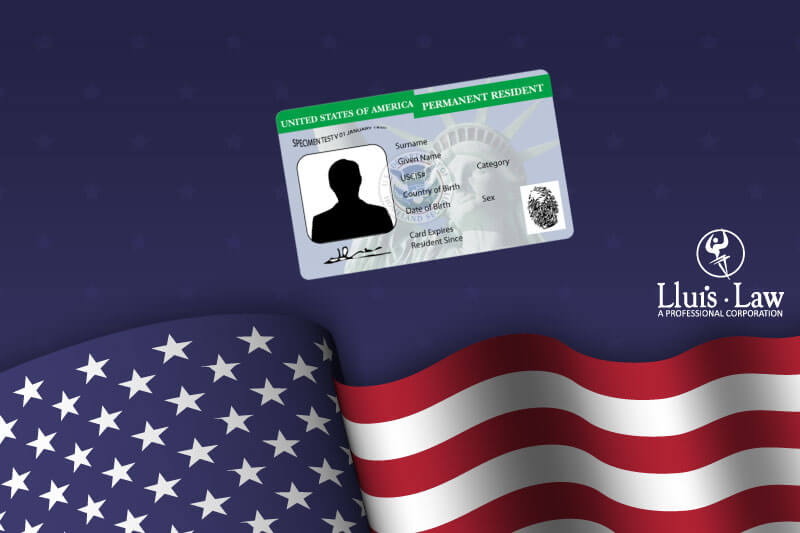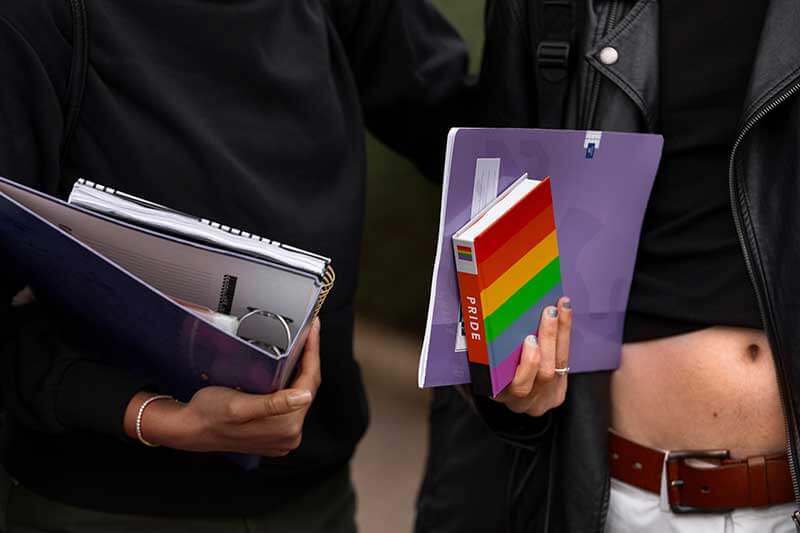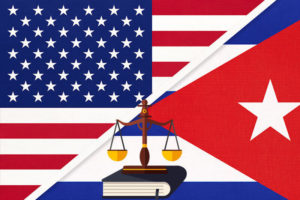Currently, the impact of immigration policies is especially severe on LGBTQ+ immigrants, and even those with legal status are not exempt.
At Lluis Law, our LA immigration attorneys understand the unique challenges facing the LGBTQ+ immigrant community.
With over 50 years of combined experience, we offer compassionate and effective legal defense for those seeking protection, asylum, or relief from deportation.
LATINOS WITH OVER 60 YEARS EXPERIENCE
Tell Us Your Case
Table of Contents
Impact of current immigration policies on LGBTQ+ immigrants
Recent immigration enforcement actions are severely impacting thousands of LGBTQ+ immigrants in Los Angeles, generating fear and constant detentions. Some key facts about this include:
- More than 40,000 LGBTQ+ immigrants in the county have not become American citizens. Therefore, they are at risk of deportation.
- Nearly 23,000 are undocumented and at direct risk of deportation.
- ICE raids have increased significantly, with more than 100 arrests in three days.
- Even immigrants who have TPS or a Green Card can lose their status.
Which immigrants are most affected?
The most severe impacts are on trans, non-binary, and intersex individuals, who face:
- Discrimination in detention centers.
- Risk of violence if deported.
- Legal uncertainty over the definition of gender in federal laws.
These policies generate anxiety, affect mental health, and reduce trust in institutions.
How do mass deportations affect LGBT immigrants?
During his first week in office, President Trump ordered a series of measures that intensified the deportation of immigrants. These actions have included:

- Raids on schools, churches and hospitals without prior supervision.
- Military deployment at the border and mass deportation flights.
- Reinstatement of policies such as the Remain in Mexico policy and the elimination of humanitarian programs.
These measures have a disproportionate impact on non-citizen LGBT individuals, who often face abuse and denial of essential medications.
What are the most recent changes in immigration policies targeting the LGBTQ+ community?
Since the beginning of 2025, several changes in federal immigration policy have directly affected LGBTQ+ immigrants in the US., especially in three key areas:
Gender identity in documentation
The new rules require visas and passports to reflect the sex assigned at birth, reversing previous protections. This has led to:
- Delays and rejections for trans or non-binary people.
- Invasive requirements such as medical or surgical tests.
Residence by marriage
Although same-sex marriages are legal in the US, they now face:
- Greater demands to prove that the marriage is authentic.
- Additional risks if the marriage was celebrated in a country that does not recognize LGBTQ unions.
LGBTQ+ asylum applications
Asylum in the United States remains an immigration path, but one with growing obstacles:
- Further evidence of identity and prosecution is required.
- Accelerated deportations and rejections increased.
- Interviews may be inappropriate.

These changes have created new barriers to obtaining a Green Card and citizenship, making legal support more necessary than ever.
What legal protections exist for LGBTQ+ immigrants?
There are several options for LGBTQ+ immigrants depending on the case:
- Asylum for persecution related to identity or orientation.
- U Visa if you were the victim of a serious crime in the US.
- T visa for victims of human trafficking.
- VAWA if you suffered domestic violence.
- Humanitarian parole in extreme situations.
These processes require solid evidence and expert legal advice. Having a specialized attorney significantly increases the chances of success.
Frequently asked questions about the impact of immigration policies and LGBTQ+ immigrants

Could my residency application be affected if the marriage took place in a country that does not recognize LGBTQ+ unions?
Although LGBTQ+ marriages are recognized in the US, if the union took place in a country that doesn’t recognize these relationships, the applicant may face higher standards.
This may include submitting additional documentation, difficulties obtaining official paperwork, and possible delays.
Can I obtain citizenship if I was granted asylum due to LGBTQ+ persecution?
Yes. You can apply for lawful permanent residence after completing one year as an asylum seeker. You could also pursue other paths and reliefs, such as refugee status in the US.
Do gender identification policies affect the naturalization process?
Transgender individuals can often face problems if their documents don’t match their sex assigned at birth, as this is required by the federal government.
Do I need a lawyer for this process?
It’s important to have legal assistance because it can make a difference, especially in LGBTQ+ cases. This is because there may be risks of discrimination or difficulties with documentation.
How can Lluis Law help with the impact of immigration policies and LGBTQ+ immigrants?
At Lluis Law, we offer sensitive legal representation committed to the LGBTQ+ community. Our team:
- Evaluate each case individually.
- Identify the most appropriate avenue for legal protection.
- Presents solid evidence, including psychological and cultural reports.
- Represents clients in asylum hearings and other immigration proceedings.
We provide humane advice and strong advocacy at every stage of the process. Call us today so we can support you in finding a safe and fair path to your future in the United States.
LATINOS WITH OVER 60 YEARS EXPERIENCE
Tell Us Your Case



